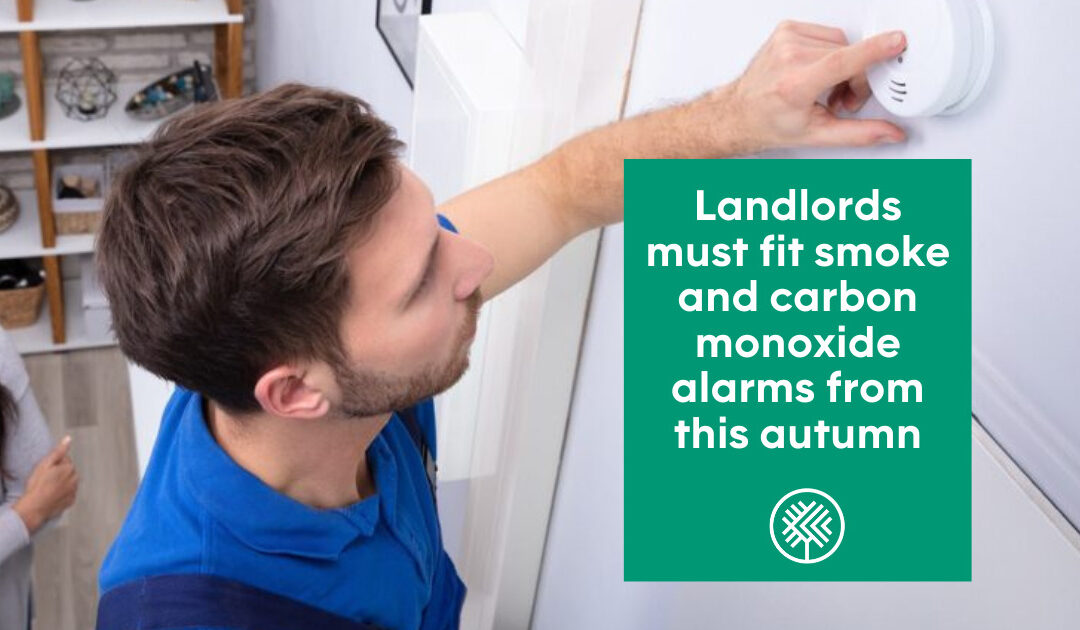From the start of October, under new rules, landlords must provide a carbon monoxide alarm in rental homes in rooms tenants use as living accommodation where there is a fixed combustion appliance, like a boiler or gas heater – although not a gas cooker – in place.
Previously, under the Smoke and Carbon Monoxide (England) 2015 Regulations, this requirement only applied to solid fuel combustion appliances including wood burners and working open fireplaces.
For many years, experts have queried this omission of gas appliances from the need to have a CO alarm in the same room, so the amendment is set to put that right.
The updated regulations, the Smoke and Carbon Monoxide Alarm (Amendment) Regulations 2022 to give them their full name, also mean that if a tenant finds an alarm is not functioning properly and reports it to the letting agent or landlord, it needs to be replaced or repaired promptly, and at the property owner’s expense. However, tenants will still be responsible for testing these devices themselves.
The new legislation comes into force from October 2022, having first been presented before Parliament on 11 May in a form known as a Draft Statutory Instrument.
And the revised rules on carbon monoxide alarms apply to both social and private landlords. (At the same time, landlords will have to ensure there is at least a single smoke alarm on every storey of any property they let out.)
Why carbon monoxide is dangerous
This highly poisonous gas occurs when any carbon fuel burns incompletely. This happens most often when appliances have been fitted, serviced or repaired incorrectly. You can’t taste or smell carbon monoxide, and the symptoms of poisoning can easily be mistaken for other common ailments. These include nausea, dizziness, headaches, loss of consciousness or collapsing.
What is the penalty for non-compliance with the new rules?
The current penalty for non-compliance is a hefty fine of up to £5,000. But carbon monoxide alarms are not expensive. So, as well as being the right thing to do, fitting them is always going to be cheaper than paying a stiff penalty.
Who do the new rules apply to?
The amended regulations apply to rented flats and houses as well as to houses in multiple occupation (HMOs). While the amendment only applies across England for now, similar rules are set to come into force in Wales, via the Welsh Assembly’s Renting Home Wales Act.
What we say
At Oakfield, we welcome this new legislation. In 2020 alone, 50 lives were lost to accidental carbon monoxide poisoning. So anything which makes life safer for tenants has to be welcomed. And it’s not too early to start getting ready before the new rules come in. We’d suggest checking in with your tenants in good time, and proactively replacing and repairing any alarms as necessary. Don’t wait for them to talk to you about alarms; take the initiative yourself, even if testing is technically the tenant’s responsibility. There will probably be a grace period, but don’t leave until it is too late – there may be a run on carbon monoxide alarms after the summer.
Finally, fitting these alarms doesn’t have to be a complex business. They’re available from leading manufacturers – look for the kite mark and compliance with BS EN 50291. Fitting a battery-powered alarm is a straightforward DIY task, although installing mains-powered models (which tend to be better) is more complicated.
We’re here to help, and can guide you through any issues as necessary. Talk to us and be sure you’re compliant with the law.

